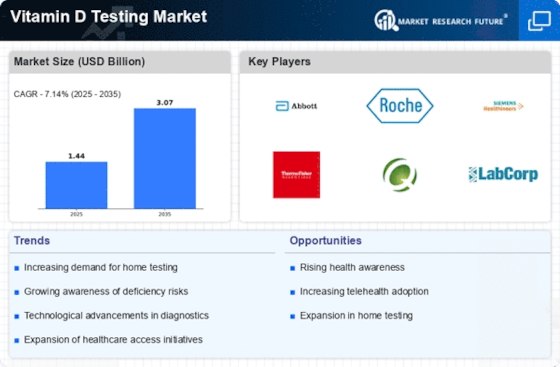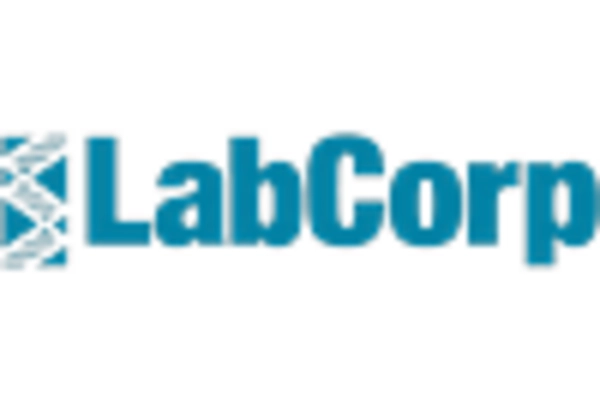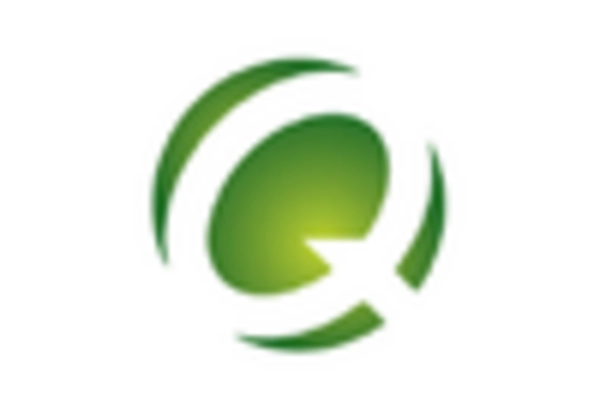Market Analysis
In-depth Analysis of Vitamin D Testing Market Industry Landscape
The Vitamin D Testing market assumes an essential part in healthcare, zeroing in on the estimation of vitamin D levels in the body. Given the fundamental job of vitamin D in bone wellbeing and in general prosperity, the market dynamics are shaped by factors impacting testing methods, demand, and mechanical advancements. Increasing awareness of the significance of vitamin D for bone wellbeing and by and large insusceptibility is a huge driver of market dynamics. As individuals become more wellbeing cognizant, there is a developing demand for vitamin D testing to evaluate and screen their nourishing status. The high frequency of vitamin D deficiency internationally is a key component impacting the market. The need for routine testing is driven by healthcare drives to identify and address deficiencies, especially in populaces with limited sun openness or explicit gamble factors. Continuous advancements in diagnostic advances add to the advancement of vitamin D testing methods. Immunoassays, liquid chromatography-mass spectrometry (LC-MS), and point-of-care testing are instances of advances that upgrade precision, awareness, and availability in vitamin D testing. The developing trend of point-of-care testing for vitamin D considers rapid and advantageous evaluation, particularly in essential care settings. POCT devices empower speedy outcomes, working with ideal negotiations for patients in danger of vitamin D deficiency. The shortfall of standardized testing conventions represents a test in the vitamin D testing market. Fluctuation in testing standards across labs and districts might affect result understanding and patient administration, accentuating the need for standardization. Doctor awareness and testing rehearses essentially impact market dynamics. Healthcare professionals progressively perceive the significance of routine vitamin D testing, leading to more proactive testing methodologies and informed patient administration. The ascent of telehealth administrations has influenced the vitamin D testing market, taking into consideration remote testing choices. Patients can now get to testing administrations from the comfort of their homes, further expanding the range of vitamin D testing. Insurance inclusion and repayment contracts assume a part in the openness of vitamin D testing. Ideal repayment arrangements urge healthcare providers to offer testing administrations, emphatically influencing market undercurrents.


















Leave a Comment